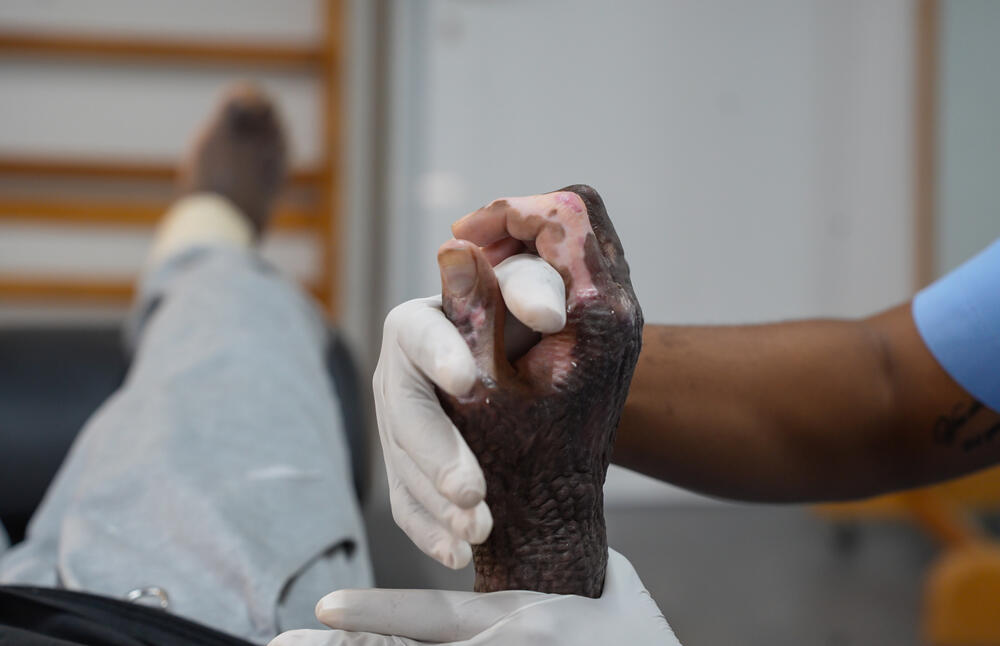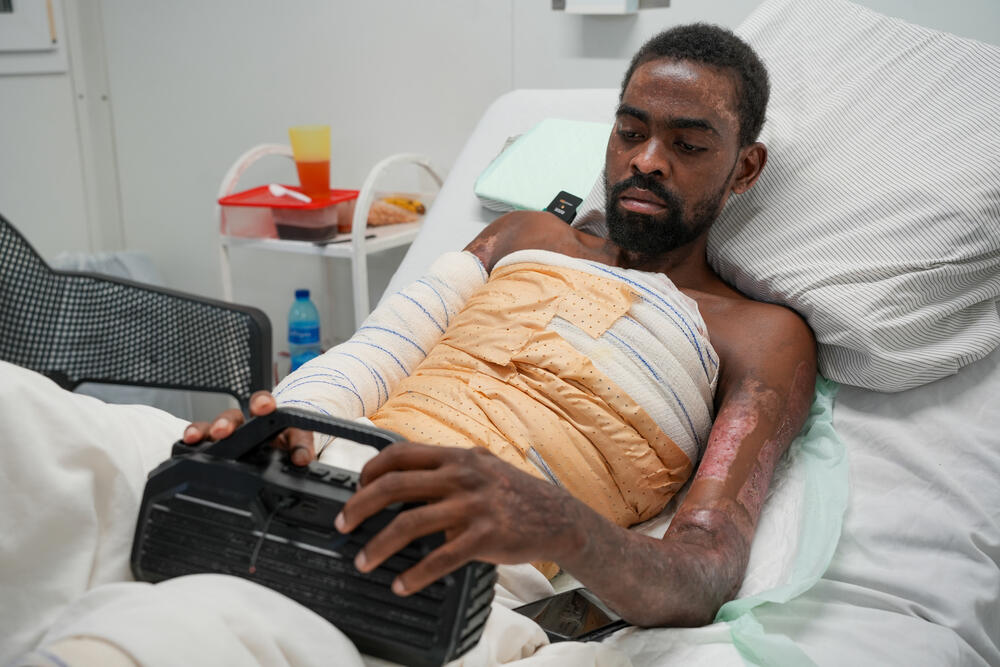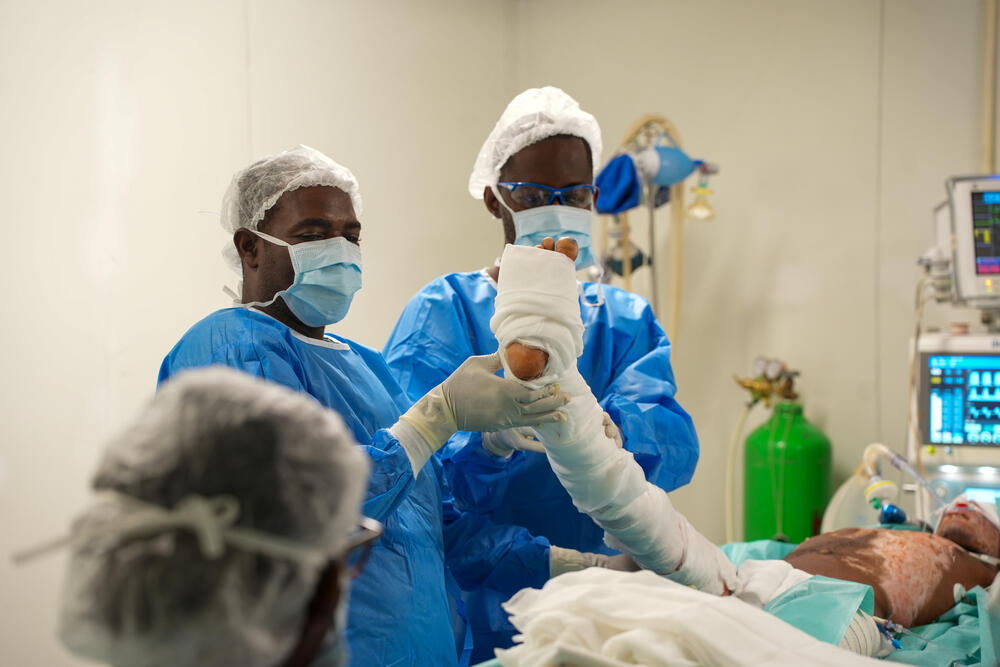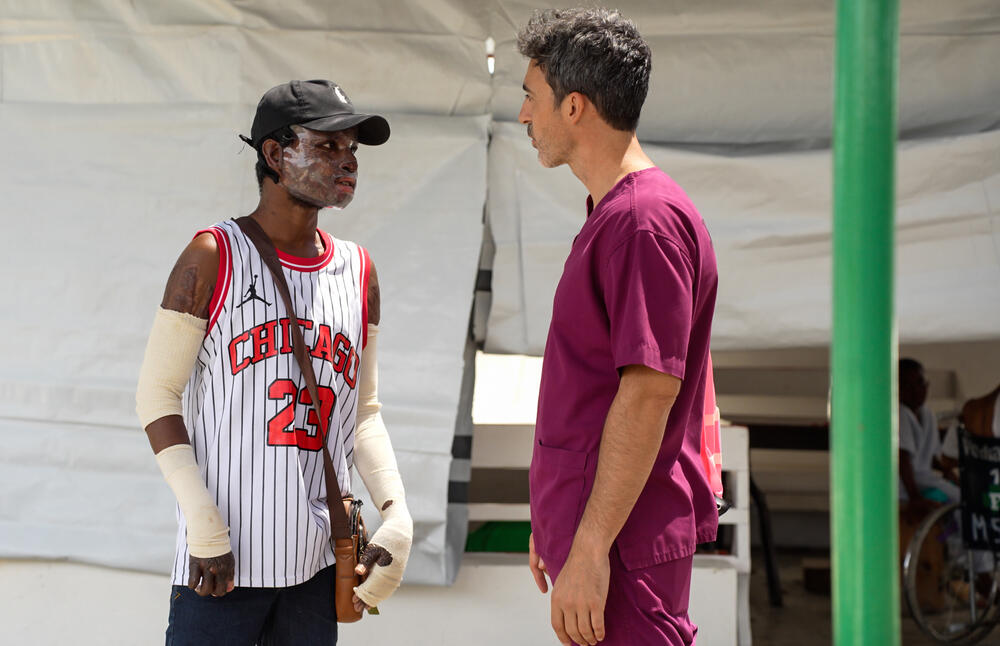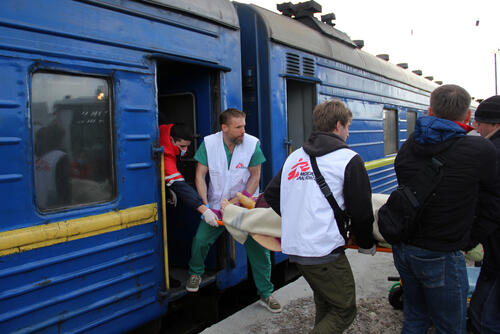Haiti: Repairing skin, a return to life for burn victims
29 May 2025
"I thought I was going to die in the flames," confides Jordan, who suffered 60 per cent burns in a tanker truck explosion in Miragoâne, in southwest Haiti. Like him, two other survivors are receiving care for months at the Médecins Sans Frontières (MSF) hospital in Tabarre, the only facility in the country specializing in treating burn victims.
On 14 September 2024, a fuel tanker exploded in Miragoâne. The incident left more than 15 dead and about 40 injured. Among the survivors, Jordan, Emmanuel, and Stanley, three motorcycle taxi drivers. "That day, another driver came to tell me that a tanker truck was leaking. I took my motorcycle and drove off, like many others. We just wanted to get some gas," says Stanley, 33.
Jordan, Emmanuel and Stanley were barely two or three meters from the truck when the explosion violently threw them backward. "I rolled on the ground to put out the flames. It seemed to last forever. The pain was unbearable. I saw other men running, their bodies blackened, screaming. I knew right away that I was badly burned," recalls Emmanuel.
“With this fuel, I could have travelled more, worked more, earned a little more to feed my family,” explains Jordan.
A treatment journey fraught with pitfalls
In Haiti, serious burns are common, particularly in domestic accidents and fires caused by the violent fighting between armed groups, national authorities, and civil self-defense groups, which is increasingly common in Port-au-Prince.
In the country, the facilities capable of treating major burn patients are almost non-existent. Added to this is the growing insecurity in Port-au-Prince, which is blocking roads and disrupting the supply of medicines, medical equipment, and fuel. At the same time, the exodus of healthcare workers abroad is exacerbating the shortage of healthcare professionals, particularly specialists.
In this context, patients sometimes have to travel long distances to receive treatment. "My neighbour took us to Sainte Thérèse Hospital. But they couldn't do anything. Then we went to Beraccat Hospital, where they gave me serum and applied some bandages, but it wasn't enough." Then Saint Boniface Hospital, then another, all in a single day. Finally, I was airlifted to the MSF hospital in Tabarre,” says Emmanuel.
Unique care in the country
MSF first opened a burn unit at Drouillard Hospital, before transferring the unit to the Tabarre Trauma Hospital in 2021 for safety reasons. Today, the facility has 30 beds dedicated to burn patients, offering comprehensive care: reconstructive surgery, skin grafts, post-operative care, physiotherapy, the manufacture of 3D compression masks, and mental health support. In 2024, more than 400 people with burns were treated there.
“When I arrived, I couldn't even move an arm. Today, I can walk again. I received treatment, medication, grafts, bandages every three days, antibiotics, physiotherapy exercises, psychological support... All of this is out of reach for someone like me," says Emmanuel.
Severely burned victims isolated in the face of insecurity
The particularly long treatment duration represents another challenge for patients. Due to the insecurity, many find themselves isolated in the hospital, deprived of the presence of their loved ones. Road blockades by armed groups limit access to the capital, where violent clashes are taking place.
After months in hospital, Stanley made a round trip to Miragoâne in March, equipped with his 3D compression mask, to see his family. "It had been more than five months since I had seen them because of the insecurity. The journey is too risky, too expensive. My mother came once despite everything. When she saw me, she was shocked. But when she saw my face regain colour in March with the mask, she regained hope. So did I."
